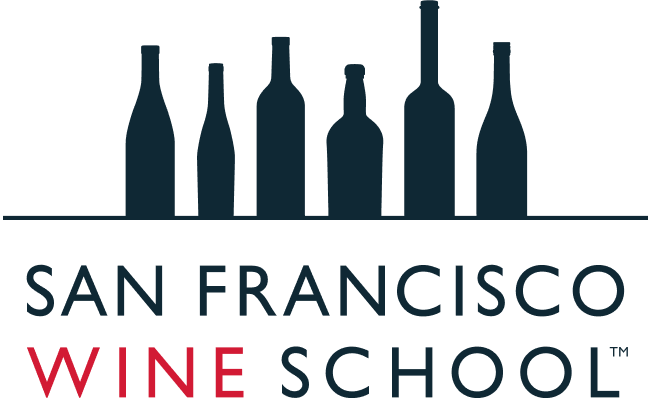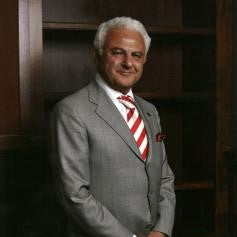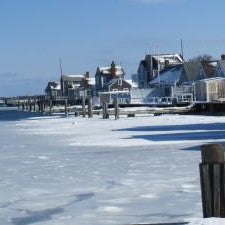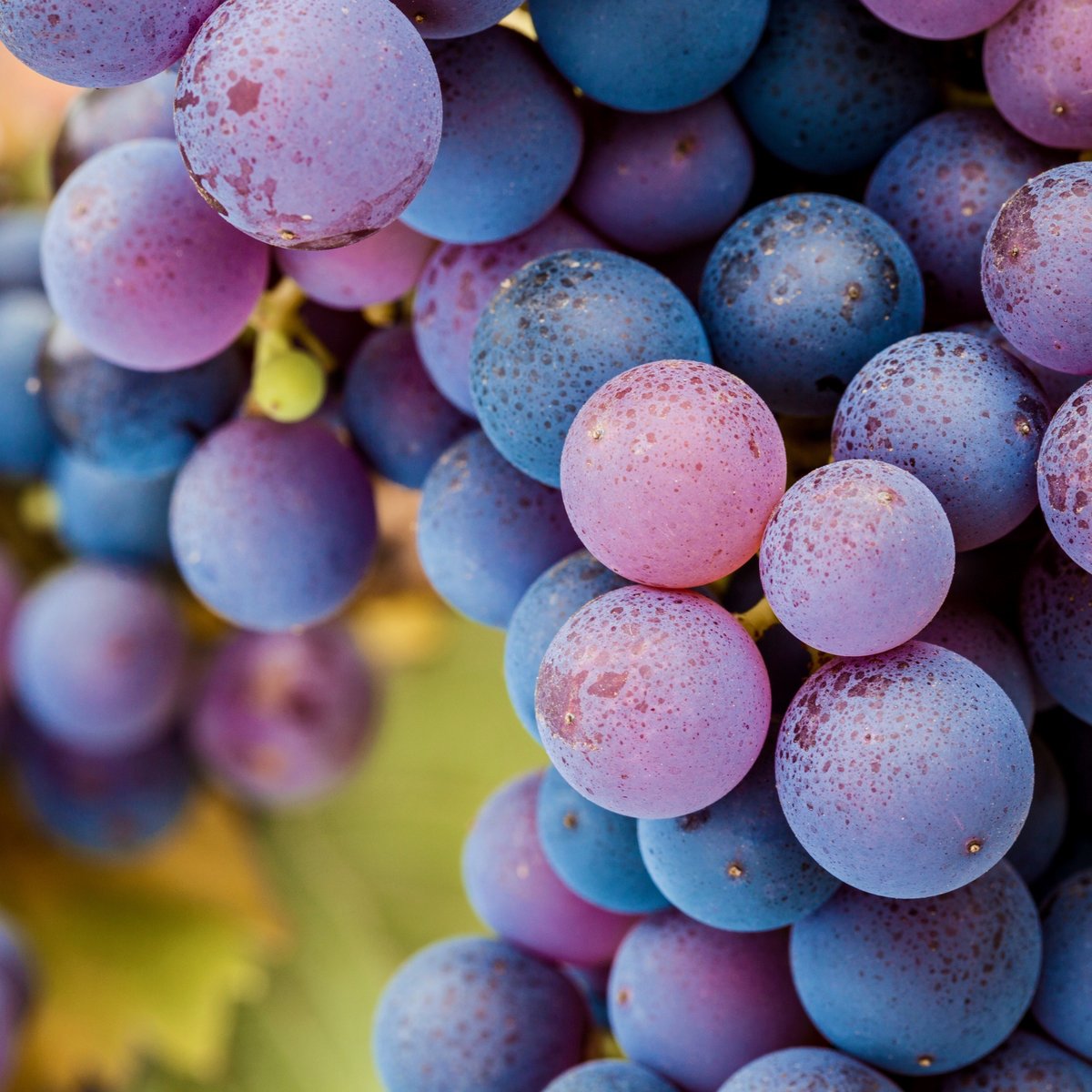Like contemporaries Terry Theise, Neil Empson, Kermit Lynch, all of whose full names grace the bottles of wines selected and marketed by them, Leonardo LoCascio's timing, business acumen, sense of purpose, and appreciation for and connection to the work of others allowed him opportunities to share with and expand the perception of what wine can be both to the US wine professional and consumer.
Born into a family of entrepreneurs noted for their acuity for both business and all things sensory, LoCascio left his native Sicily in 1969 to study finance and business in New York City then Chicago, leaving a VP position with CitiBank in 1980 to expand his horizons in a field with which he was more impassioned, wine. Winebow has since grown from a New York City regional importer/distributor of Italian wines with distribution contracts throughout the US to a major player in 17 states as its own entity working with wines from Italy and other European counties along with those from the Americas, sake and spirits. The recent announcement of his June 2015 retirement from the company he founded, Winebow, led to our having what is the first interview he granted following this news.
Before working with wine you studied at NYU and the U. of Chicago. How did that formal education inform your later work in what, at least in the US, was a relatively unstructured area of endeavor?
I came to the world of wine with a culture and understanding of financial propriety. Wine has always been passion, but it also needed to be a business by balancing the need to grow the company with financial caution, making sure the numbers are right. My point of entry wasn't sales or winemaking, it was distribution and importation--expensive, labor-intensive endeavors where you need drivers, office and warehouse spaces. I made sure that it was in place and in a financially sound method. Financial controls learned from my education being extremely useful were formed then. When I began I had no money, everything was done on a shoestring budget, and in order to grow as we did it required a lot of financial discipline. Being on a sound financial track in building the company was one of the advantages we had, ensuring that employees and suppliers got paid before me…and that was Ok.
Professional wine education in the US has undergone tremendous changes since you began working with wine. What more should be implemented than is already being done?
There is two answers; one is that overall although there's pockets of substantial education available to people interested in wine, I don't think there's enough being done throughout the country. Each coast has things being done but with the amount of interest shown, if you want to go deep into it there are few sources. What is spent on education is absolutely not enough for the 'supply side'. On the 'demand side' it's imperative that demanding educational programs be given to sales reps so they may become proficient in the business of wines. As the buyer side has become more sophisticated they need to interact with people who know the specifics of styles and geography. This is something a lot of companies pay lip service to but there are really no consequences for people not learning. The longer I was in the business, in the fine wine part of things education makes the big difference. We've had in Winebow historically a more educated sales force than our competitors.
What are the presiding factors contributing to the US becoming only in 2014 the country with the largest volume consumption of wine?
The demographics is that the US is the only rich western country in which the population is growing. In 25 years when there's 2% population growth you'll grow your country 50%+; then you have increasing per capita consumption which is still less than in S. America and Europe. Every year there are more people graduating into possible consumers of wine, and those people understand that wine is sophisticated, delicious and matches with food. 13 bottles of wine per person year are consumed in the US, whereas in Europe it's 40 bottles, which gives you an impression of the potential that this country has.
For the '80s and into the '90s your success was anchored by your commitment to previously overlooked areas of Italy--Calabria, Puglia, Sardinia, and your native Sicily. Despite the uphill battle doing so in a market unaccustomed to Italian wines of quality, let alone those from areas then unknown to wine buffs, how did you achieve this unique success?
The wine selection process contributed to creating a 'halo' that Winebow has in importing quality wines which are interesting wherever it is they originate. When people came to our tables at tastings we offered a lot of what were and are pretty good wines. The perception of quality was there and delivering interesting wines to the marketplace is what created the culture and reputation of the company. The key factor for success is by understanding before others that this was a very fast-changing marketplace for wine. When I started, roughly 10,000 distributors of all sizes were operated in the US; now there's 1000. Now there's a 1000 wineries from California alone with wines coming from places where wine wasn't known before in the US. It made it very difficult to bring product to market then. We went to a producer in Calabria offering to be their importer, distributing those wines ourselves where many distributors existed in a shrinking market. We now sell in 17 markets without a situation in which a distributor has to determine how much attention those wines are going to get. This direct-to-market strategy has been extremely successful, that on top of the image we have in the marketplace--a habitat we created for ourselves to enjoy the success we had.
With the growth of Italian wines as healthy as they were and continue to be, why expand into other European and non-European wine producing areas as you did?
It wasn't a lateral move--I felt the need to learn new areas. At one point I went to Japan and chose a portfolio of 7-8 producers of sake which I had to learn from scratch, a calling that came from within, to learn and experience new things. There was a time in the mid-late 2000s when the dollar was less valued than it was today and it became difficult to only sell Italian wines, so we looked to countries which had lower costs than Italy. It was a combination to want to expand our horizons and also to be aware that market conditions had changed. During the recession years we still grew by offering lower price point wines. We weren't bored or tired of Italian wines, but there was a need in the marketplace that needed to be fulfilled. I'm happy that we did that.
When you established Winebow in 1980, Italian wines held a far different place in the pantheon of what was then also a very different world of wine. What contributions have you made of which you're most proud?
They need to be divided into two segments; one is the contribution to marketing and selling products that are already established in positioning. There isn't much you can do by asking Antinori or Gaja, any of the iconic producers, to change to secure a place in the US market. The contributions were on the marketing and selling side by promoting as respectfully as their partner in the US. They're putting all the quality they can in their wines, we did the same with our distribution. There was also an opportunity to help with the positioning of the wines that weren't so well known, and this was done to amplify the chances of their success by creating input on positioning, packaging, and pricing. One of the most successful wines we've worked with has been Vitiano. Riccardo Cotarella and myself in my office began talking about making a red wine from an area which was then a white wine area, Umbria. We came up with the varietal blend, the packaging, the pricing. Librandi in Calabria makes a dozen wines, most of which we don't import because while they may do well with all of them in Italy, not all would do well here in the US. One of our most highly regarded wines are Montevetrano from Campania; I began by buying their entire production, giving them the confidence to make their wines and expand what they did.
Over this same 35 year period, which of your friendly competitors have you admired for their business acumen, understanding of wine, and generosity of spirit?
I've always admired people who have a clear-headed sense of strategy and mission. An obvious answer would be Kermit Lynch. He knows which wines he wants to import and the people he wants to work with. He's had a long career working with people possessing that criteria. The search for quality cannot be done in a vacuum. If you're an importer your job is to stay within the boundaries of what is possible.
Climate change--good or bad for Italian wines?
Overall it's good for Italian wines. Most of the well-known wine regions are north of the Apennines starting with Tuscany and Umbria as the number of bad vintages from these areas have shrunk. But what about the Mezzogiorno? Most of the better producers there are on hillsides or in mountains where climate change isn't felt so strongly, as the nights will keep cooler to allow the wines to retain their acidity. Though in the north, Tuscany and Veneto have also been positively affected.
If you could turn back the clock and change one decision you made, what would it be?
I would've create an organization within Winebow that would've led to expertise in other regions and countries so we earlier could've been a player in Spain, Portugal and other places. It was hard enough being a player with Italy before running all over other places, but investing in people who would've helped build a portfolio as we did with Italy and sake, I would've liked to have done that earlier.
If you could turn back that same clock and congratulate yourself for a decision you made, one which hasn't really been acknowledged by others, what would that be?
We've received a lot of acknowledgement for our wines from southern Italy, but that was related to the price/value relationship. There wasn't enough appreciation for the intrinsic qualities of the wines themselves, more so for their pricing. A higher and deeper appreciation of the function of their quality would've been nice.
Your estimable career in wine has left an indelible mark. What's the next mountain you'll climb?
Wine won't be out of my life, I'm a student and consumer before I'm anything else and I'll continue to do that. The people and the land is part of my fabric. The new passion isn't necessarily driven by profit or success motive, it's an opportunity to give back a bit. Born and raised in Italy, I want to establish an educationally driven foundation done in perpetuity giving young people from Italy a chance to come and study in the US through scholarships giving young people who are deserving but without means the chance to build for themselves a better life by building a solid educational foundation.
Note to Reader: While I've no fiduciary obligation to LoCascio's Winebow, my connection to it dates to 1998 when I was briefly in its employ helping to sell its then 84 Italian wineries in the Midwest. My one & only foray into non-retail wine sales taught me a few things salient to my being a more proficient communicator of wine.
Explore Italy's top regions and appellations in our Introduction to Italian Wines Workshop.
Check out our full schedule of programs, workshops and public events. Private, customized experiences and corporate training is also available.



